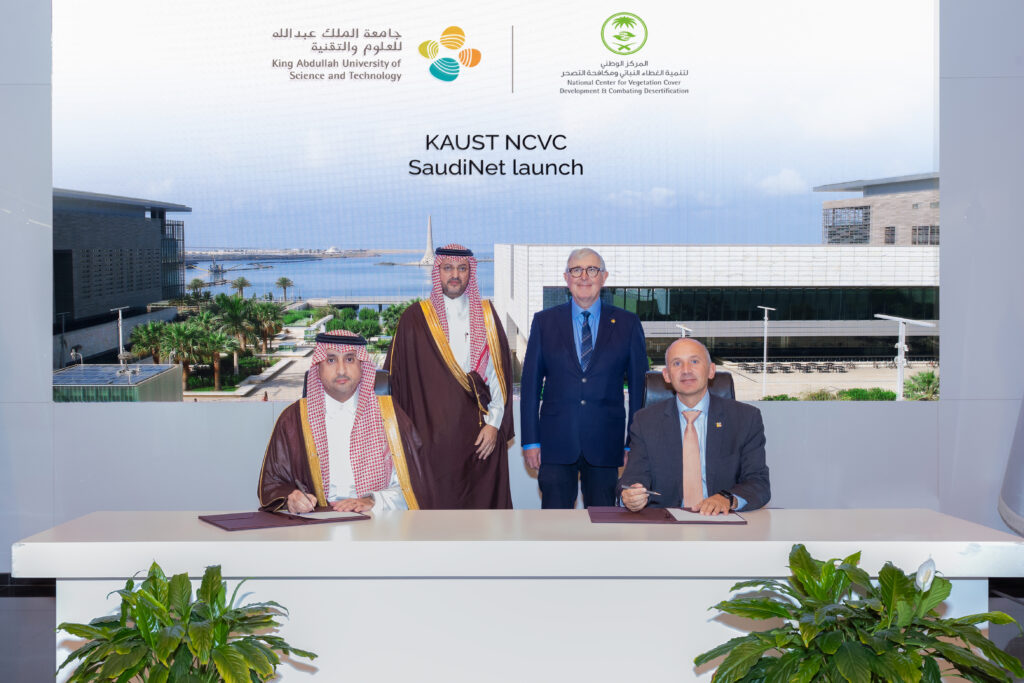
Through SAUDINet, KAUST is teaming up with the National Center for Vegetation Cover Development and Combating Desertification (NCVC) to advance dryland ecosystem preservation through science and technology. The initiative’s launch strengthens the Kingdom’s terrestrial ecology while training NCVC employees in biodiversity monitoring and sample collection.
Professor Fernando Maestre, Environmental Science and Engineering, designed SAUDINet’s field protocols, while KAUST’s advanced space-based systems, AI and Earth observation tools provide superior monitoring data to support sustainable land management. SAUDINet aims to position Saudi Arabia as a global knowledge leader in arid and hyper-arid ecosystems.
Most biodiversity and soil data come from non-dryland ecosystems, leaving arid regions largely underrepresented. For example, hyper-arid lands contribute less than 0.1 percent of global soil carbon data. This gap matters as climate models and satellite observations rely on ground data to ensure accuracy, explains Maestre, who heads SAUDINet.
As part of the initiative, NCVC’s workforce will receive specialized training in biodiversity monitoring and ecological sampling, with collected samples analyzed in KAUST’s cutting-edge laboratories. Research under SAUDINet will focus on restoring degraded lands, enhancing carbon sequestration and preserving biodiversity.
The launch of SAUDINet represents a major step forward in combating desertification and land degradation through innovative ecological research and data-driven solutions.

